
views
Meeting the Requirements

Locate the nearest Russian embassy or consulate in your country. All your paperwork for obtaining a visa to Russia has to go through the Russian consulate in your country. Russia has offices worldwide, so start by finding the nearest one to you. Submit all your materials at this office and direct all your questions to them. For a list of Russian embassies and consulates worldwide, visit https://www.russianembassy.net/. The consulate may accept application materials via email or mail. Ask a worker there about the procedure for submitting the materials.
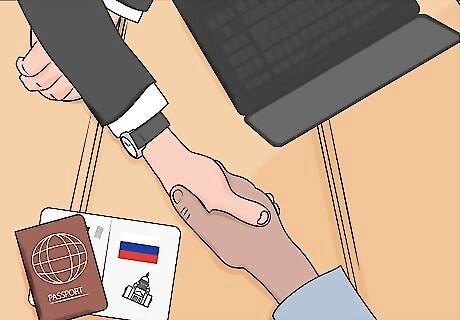
Find a Russian citizen to sponsor your move. Russia has strict immigration laws, and potential immigrants need a Russian sponsor to support them. Usually, this is a relative of some kind. However, the sponsor can also be an organization like a school or employer. Before you start the visa process, make sure to arrange a Russian sponsor or your application won’t go through. If you're moving to Russia for work and already have a job lined up, then your employer can serve as your sponsor. Sponsors can also be travel agencies or hotels for long-term travelers. Since you’re planning on moving to Russia, this probably doesn’t apply to you.

Gather documents to prove your identity, citizenship, and health. The Russian visa process requires several different documents proving your identity, citizenship, health, and criminal background. Have all of these necessary documents ready before visiting the embassy to make your application process as smoothly as possible. For a temporary residence permit, you’ll need a passport photo, identification like a passport from your home country and state-issued ID card, a document confirming that you have no criminal history, a health report indicating that you have no communicable diseases, and a certificate of competency in the Russian language. You may also have to submit financial information like bank statements and proof of income. Priority is usually given to foreign citizens who own property in Russia or have large deposits in Russian banks. If you have a criminal record, speak with an immigration lawyer to see how you might be able to get around this rule.

Learn to speak Russian to at least a B1 level. Russia requires a strong competence in the Russian language for residence visas. A B1 level indicates that you know enough Russian to get through everyday life. Required skills consist of having short conversations on normal topics, reading newspapers and signs, asking for help or directions, and writing letters. If your Russian is not up to this level, then spend more time studying so you can pass the required exams for a visa. Start studying well in advance of the date you want to move. Failing the language exam can ruin your entire plan for moving to Russia, so don’t risk it. If you totally immerse yourself in the language and spend several hours each day on it, then you can achieve competency in about 3 months. More realistically, it will take you at least 1 year of careful study. If you already know some Russian, then you might only need some refreshing instead of many hours of study. This depends on your competency level. There are many language classes or software you can use to improve your Russian skills. Also try to find a Russian TV station near you and watch it as much as you can. If you have Russian neighbors or friends, ask them to practice with you. Russia grades language competency from A to C, with A indicating introductory knowledge and C indicating near-fluency. The B level is between those two levels.
Planning Your Move and Getting a Visa

Choose a city where there is a demand for foreign workers. Unless you're independently wealthy, one of your first concerns when moving to Russia should be finding work. Russia's 2 main cities are Moscow and St. Petersburg, and the demand for labor is highest in these cities. These would be good choices to choose to settle. If you want to settle in a different place, see if your sponsor can help you find a job in the vicinity. There is a demand for skilled workers like IT professionals and engineers in Russia. You'll have a better chance of finding work as a foreigner in skilled sectors like these. Teaching your native language is another route to find a job. English-speakers can usually find teaching jobs if they're proficient in Russian. Businesses may also want foreigners to work as translators. There are several job sites to help with your job search. General sites like Indeed and Monster have international postings, so set the filter to Russia to narrow your search. Also, search on Russian websites or the web pages of businesses you'd like to work for.

Arrange a place to live before you arrive in Russia. It will help your application considerably if you already have a living place set up when you arrive in the country. An easy way to find homes to rent or buy is to contact a real estate office in the area you're moving to. You could also check local newspapers for rental postings, as many Russians use this method to find housing. Like many other areas, renting in city centers is more expensive than renting further out in the suburbs. Immigrants from the US or Western Europe, however, may find the housing relatively cheap. A 1-bedroom apartment in the center of Moscow could rent for about $1,000 per month, much cheaper than expensive American cities. If you're going to live with your sponsor, they must indicate this on their invitation for you.

Make an appointment at your local Russian consulate. If you show up unannounced at the consulate, you may face a long wait or be denied service. Plan ahead and make an appointment to submit your paperwork. This will make the process smoother. Tell the consulate staff that you intend to move to Russia permanently. This will allow them to prepare the necessary forms and applications to walk you through the process.

Have your sponsor send you an invitation to enter Russia. Whether your sponsor is a family member or an organization, Russia requires a formal statement of support for you to enter the country. Have your sponsor send you a letter detailing the dates you'll be traveling, where you'll be staying, the purpose of your visit, and their relationship to you. Bring this letter with you and submit it with your other paperwork. The invitation should be explicit about the nature of your visit to Russia. In this case, since you intend to move to the country, the invitation should state that you’ll be living in Russia full time and starting the process for permanent residency. The sponsor must indicate where you’ll be staying in Russia. You cannot move or stay in a different location without permission.
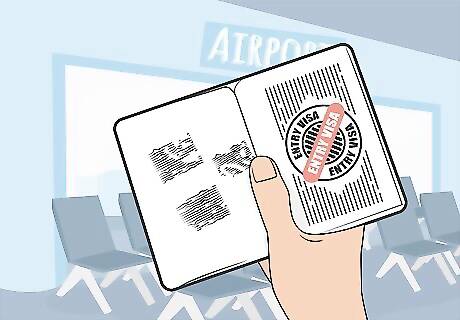
Apply for an entry visa to enter Russia. Usually, Russia only grants temporary visas to foreigners when they’re already in the country, so you first need an entry visa. Visit the consulate and submit your passport, identification, health and criminal records, and any other paperwork the consulate may have requested. The consulate will then provide you with an application form for entry. Once you’ve done all this, wait for the application to process. All of the paperwork you’ll have to sign will be in Russian. This is one way the consulate tests your competency in the language. Entry visas may take several weeks to process. In the meantime, pack and make all the necessary preparations to make your move.

Ship large items to your destination ahead of time. You'll be limited on how much luggage you can bring on the plane with you, so plan ahead and ship some luggage before you leave. See if your sponsor is willing to receive the packages and hold onto them until you arrive. If you'll be living with your sponsor, then this should work well. Otherwise, contact your living place to see if someone there can receive the packages. Major shipping companies like UPS or FedEx ship to Russia, so these may be your best options. If you're in the US, the US Postal Service also ships to Russia, but there are restrictions on the size of the packages.
Entering and Living in Russia
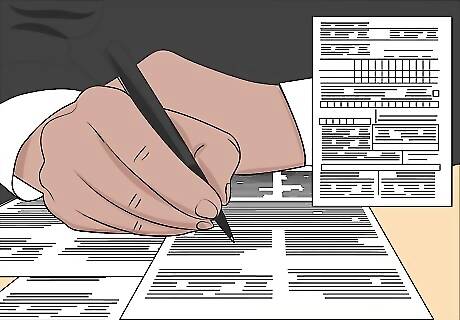
Obtain a migration card when you enter Russia. If your entry visa goes through, then travel to Russia. At a port of entry, you’ll receive a migration card indicating that you entered the country legally. Fill out the necessary information, including your name, where you’ll be staying, and your sponsor. If all the information matches the paperwork you submitted, then your migration card will receive a stamp indicating that you’re free to enter Russia. Keep the migration card on you at all times until you receive your residency permit. If you lose it, contact the Ministry of Internal Affairs in Russia within 3 days to avoid a fine. There is a chance that you’ll be denied entry into Russia at this point. Conditions for denied entry are missing paperwork, or inconsistencies in the information you’ve provided. Make sure to travel with all your paperwork and fill every form out correctly.

Apply for a temporary residence visa at the Ministry of Internal Affairs. As soon as you’ve legally entered Russia, visit the nearest Ministry of Internal Affairs to obtain a residency permit. You need a temporary residency permit first that is valid for 3 years. Bring your identification paperwork with you and fill out the temporary visa application form. Then wait for the permit to process while you establish yourself in Russia. You’ll need to submit the same identification paperwork that you submitted for your entry visa, so bring all this with you. Residence visas can take up to 6 months to process. Remember that when you receive a temporary residency permit, you’re only allowed to work in the region of Russia that you reside in.
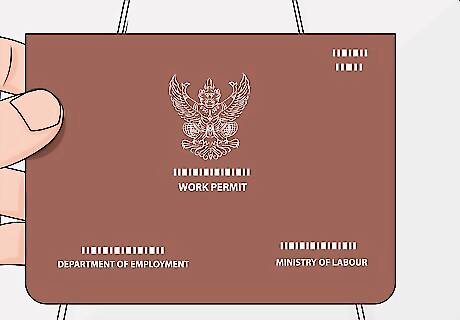
Obtain a work permit while your residence visa processes. Until you get your residency visa, you can’t legally work in Russia without a work permit. First, find an employer who is willing to hire a foreign national. Then have the employer submit a work invitation for you. When you receive a work permit, you can legally work in Russia. The work permit you receive only pertains to your current job. If you switch jobs, your new employer has to submit a request for a new work permit. Russia keeps quotas on the number of foreign nationals allowed to work in the country. If the quota is met for the year, you won’t be able to work until you have your residence permit. Many businesses don’t want to go through the hassle of hiring a foreign national unless you’re a skilled worker, so be prepared to wait until you have your residence permit to start working. Some people begin working without a work permit and before their residence visa processes, but this is illegal. You could face fines and deportation if you break the law.

Gain permanent residency after living in Russia for 1 year. After living in Russia fulltime for 1 year, you’re eligible for permanent resident status. After that point, visit the Ministry of Internal Affairs to apply. Bring 4 passport photos, valid identification, proof of income, proof of residence, and a medical certificate indicating that you’re free of communicable diseases. Allow up to 2 months for your application to process before you receive your permanent resident visa. With a permanent resident visa, you can gain access to Russian social services, enter and leave the country without a visa, work in all parts of Russia, and vote in Russian elections. Apply for permanent residence at least 6 months before your temporary visa expires. The permanent resident permit lasts for 5 years and can be renewed an unlimited number of times. Always apply for renewal at least 2 months in advance of the expiration date to avoid legal problems.
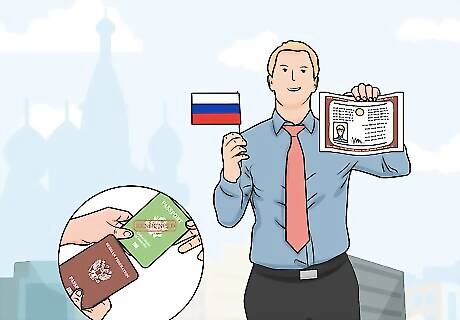
Apply for naturalization 5 years after gaining permanent residency. If after 5 years you decide you want to stay in Russia, then begin the process to become a naturalized citizen. Russian citizens have the full protections of the Russian constitution, cannot be deported, have no limitations on where they can work, travel, or live, and can get a Russian passport. To become naturalized, visit the Ministry of Internal Affairs. Prove your residence and income, and also agree to abide by the Russian constitution and renounce your previous citizenship. After this application processes, you’ll be granted Russian citizenship. To qualify for citizenship, you cannot live outside Russia for longer than 3 months at a time in the previous 5-year period. Some people choose to remain permanent residents rather than becoming citizens. Consider the pros and cons to decide which option is best for you.
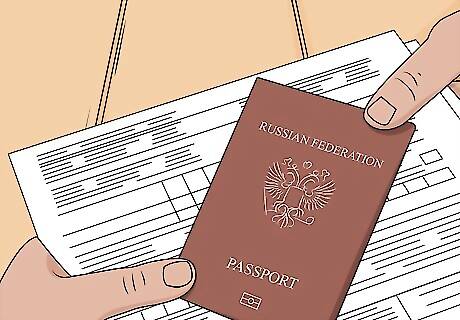
Obtain a Russian passport after getting citizenship. A Russian passport allows you to travel abroad without limitations. If you plan on traveling internationally after becoming a citizen, then apply for a 10-year Russian passport. Apply at the Government and Municipal Services office. Submit the application form, your citizenship papers, and 2 photographs. When the application processes, you'll be issued a Russian passport.












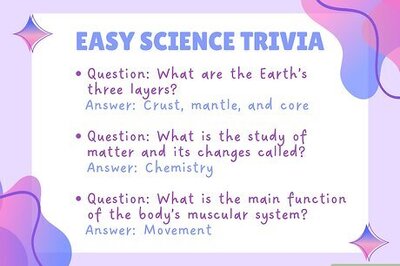







Comments
0 comment